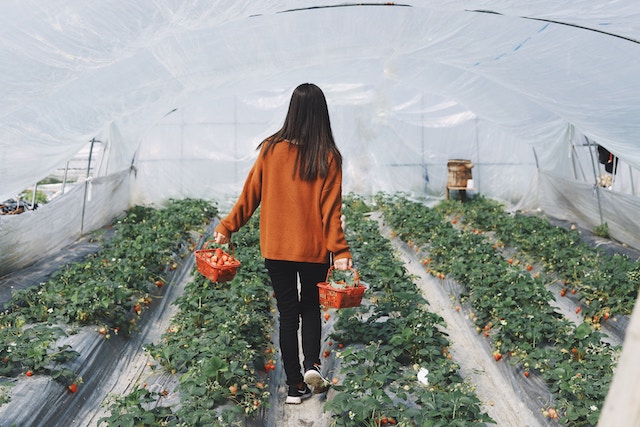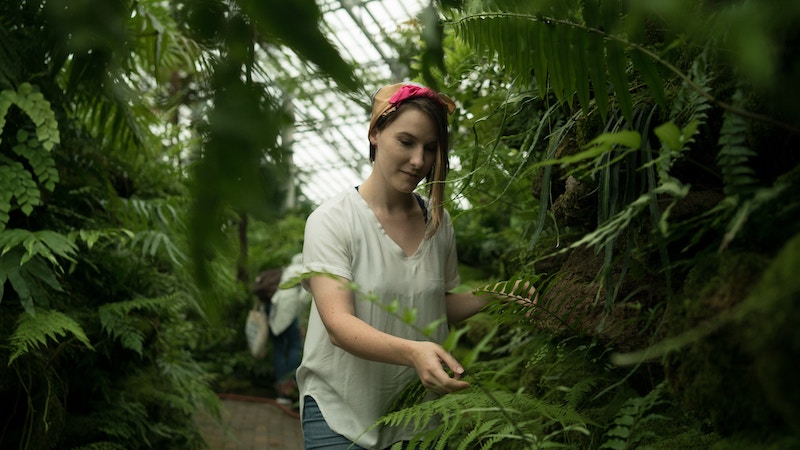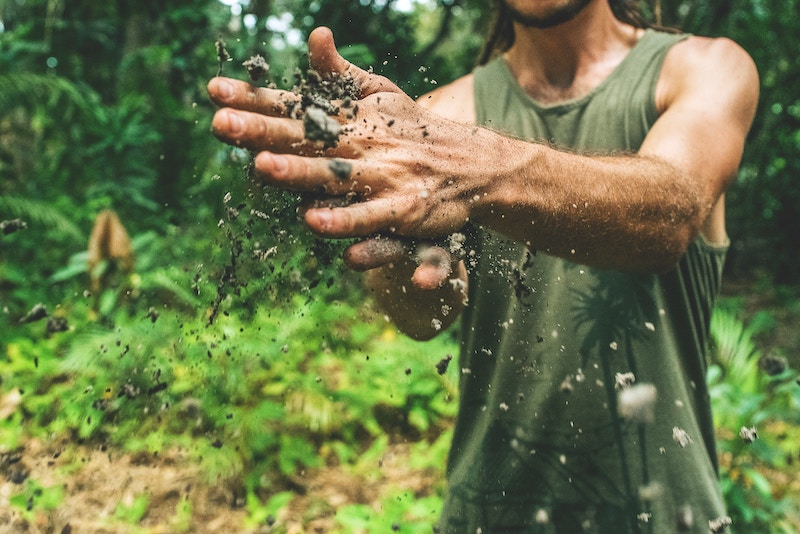Compost, the gift that keeps on giving! If you are interested in the world and its natural cycles — and not afraid to get your hands a little dirty — then composting is for you. The simple act of piling up your organic food and household scraps to encourage decomposition can pay off, big time. It reduces the amount of human waste that’s sent off to landfills (bringing those who are interested in zero-waste just that much closer to their goal) and, of course, provides us with the best free fertilizer that the earth can offer. All of your trees, backyard landscaping and potted plants require the nutrients that come from compost, but we don’t need to shell out money for bags of the processed stuff at the hardware store.

Even if you don’t garden, creating compost is a way that many people demonstrate their respect for the earth. Human activity strips so many nutrients from the soil that you can garner good karma by completing the earth’s disrupted nutrient cycle and feeding the lush, nutrient-rich compost straight back to its source. Many people who compost consider it sacred, as it brings them directly in tune with on of the most cleansing natural processes around.
As long as your compost is made of completely organic materials (things that were once living), messing up compost is hard to do — everything decomposes eventually, but we’re just managing the process. You can begin with a composting bin (to keep it nice and tidy) or with a pile in your backyard (the free option) and begin adding your organic trash to it — everything except fats and meat, which can smell and attract vermin. That’s it! If you wish to speed up the process, try cutting your compost scraps into tiny pieces, pay attention to your balance of wet/dry ingredients and turn your compost with a pitchfork or tumbler once a week.

David Sager
Once you’re feeling fairly confident with your composting, try adding red wiggler worms (commonly called vermicomposting) and play around with these uncommon compost sources!
Latex
Latex might not be the first thing that comes to mind when you hear ‘organic,’ but it is! As long as the latex products you buy are natural, rather than synthetic, you can add it to your compost. This includes the common household items of gloves, balloons and condoms, which can choke birds and other wild animals that believe its food.
Christmas Trees
We’re used to seeing these winter holiday decorations on the curbside, but it’s not needed! Tree matter is slow to decompose, but it’s not an unreasonable amount of time if you use shears or a woodchopper to break your Christmas fir into small pieces first.

Eddie Kopp
Keurig Cups
If you’ve heard the fact that the amount of k-cups in landfills could circle the globe 10 times, then you know this is a problem convenience-driven humans must address. Recyclable k-cups exist, but you have to wash them out every time — however, Gourmesso’s Glorybrew pods for Keurig machines biodegrade in 12 weeks. That means no washing! Just throw them in your municipal compost facility and you’re good to go.
Kombucha Scoby
If you love kombucha but hate the plastic & glass bottles, you’re probably considered (or tried) to brew your own at home. Like composting, the process is generally straight-forward, and when you do it well your kombucha will provide you with endless ‘baby scobies’ (the symbiotic colony of bacteria which ferments the kombucha tea). You can share these with friends so that they can start their own kombucha system, or you can simply throw them in your compost!
Newspapers
Newspapers, too, can be an important addition to your compost. The old newspapers that you have piling up in your house can be a great help when trying to maintain that tricky balance of wet and dry ingredients. A few tips: Remove any plastic casing or glossy inserts and shred before your toss them in. While you’re at it, go ahead and toss all your shredded paper in your pile!

Tim Mossholder
Pet Fur
This compost ingredient is not for the faint of heart! Some might consider it a little strange to add fur (and, at the same time, human hair) to their compost, but it’s a great use of the fur and hair that’s collected by hairbrushes, vacuum cleaners, brooms and the occasional stray dust bunny. Speaking of bunnies, if you have smaller pets, their wooden bedding and dry food also makes fine compost.
Wine Corks
Cork — it comes from a tree, which means it’s compostable. If you’re not saving your wine corks for a craft project, chop them up and toss them in. The wine bottle, however, must be recycled, so try bagged wine to lesson your impact on the earth. Even the cardboard box can be composted, along with any extra or spoiled wine.
